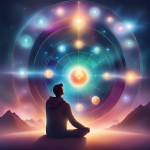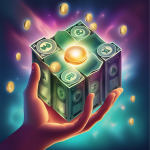Halloween, celebrated on October 31st, is one of the most ancient and mysterious festivals observed worldwide, particularly in Western countries like the United States, Canada, and parts of Europe. With origins rooted in pagan traditions, it has evolved over centuries into a day filled with costumes, candy, and spooky celebrations. But what is the true meaning behind Halloween, and why is it celebrated?
The Origins of Halloween
The modern celebration of Halloween can be traced back to the ancient Celtic festival of Samhain, a Gaelic festival marking the end of the harvest season and the beginning of winter. The Celts, who lived 2,000 years ago in what is now Ireland, the United Kingdom, and northern France, believed that on the night of October 31st, the boundary between the worlds of the living and the dead blurred. They thought that the ghosts of the dead would return to earth, bringing mischief or even damage to crops.
To commemorate the event, Druids (Celtic priests) built massive sacred bonfires, where people gathered to burn crops and animals as sacrifices to Celtic deities. During these festivals, the Celts wore costumes, typically made of animal skins, to ward off evil spirits.
Christian Influence and the Evolution of Halloween
By the 9th century, as Christianity spread into Celtic lands, many of the old pagan traditions merged with Christian practices. In the 8th century, Pope Gregory III designated November 1st as a time to honor all saints and martyrs. This became known as All Saints’ Day or All Hallows’ Day, and the night before it—October 31st—became known as All Hallows’ Eve, eventually shortened to Halloween.
With this blending of traditions, Halloween evolved into a day filled with both religious reverence and supernatural folklore.
Why is Halloween Celebrated Today?
Today, Halloween is primarily celebrated as a fun, spooky, and often light-hearted festival. Its significance has transformed over time, with a focus on themes like trick-or-treating, costume parties, and haunted houses. But some spiritual elements still remain, especially in how people observe the holiday in different parts of the world.
Honoring the Dead: Some cultures still see Halloween as a time to remember and honor the dead. This echoes back to the ancient belief that the spirits of ancestors return to the mortal world.
Facing Fears: Halloween allows people to confront and even embrace their fears. By donning costumes of ghosts, witches, and monsters, individuals symbolically gain power over their anxieties.
Celebration of Autumn: Like the Celts, many still associate Halloween with the changing of the seasons. The harvest theme, pumpkins, and falling leaves all point to a connection with nature and the cycle of life and death.
Modern Halloween Traditions
Trick-or-Treating: A relatively new tradition that began in the United States in the early 20th century. Children dress in costumes and go door to door asking for candy, a practice that likely stems from the medieval English tradition of “souling,” where the poor would visit homes asking for food in exchange for prayers for the dead.
Pumpkins and Jack-o’-Lanterns: Carving pumpkins into eerie faces comes from the Irish legend of Stingy Jack, a man who tricked the devil and was doomed to roam the earth with only a carved-out turnip to light his way. When Irish immigrants came to America, they found pumpkins more abundant than turnips, and the tradition shifted.
Costume Parties: People of all ages enjoy dressing up as everything from mythical creatures to pop culture icons. The practice of wearing costumes comes from the Celtic belief that disguising oneself as a ghost or spirit would protect them from being harmed by wandering souls.
Spiritual Significance of Halloween
For many who practice pagan or Wiccan traditions today, Halloween—often called Samhain in these circles—holds deep spiritual significance. It is considered a time to honor ancestors and reflect on the cycles of life and death. The thinning of the veil between the worlds makes it an ideal time for spiritual practices like divination and communicating with spirits.
While Halloween has transformed into a modern-day spectacle of fun and frights, its origins are deeply spiritual. From its roots in ancient Celtic traditions to its place in modern-day festivities, Halloween remains a powerful reminder of the interconnectedness of life, death, and the spiritual realms.




